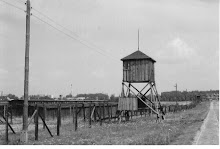There is an adage that says that "if your only tool is a hammer, every problem looks like a nail". Considering the myriad of problems we encounter in our lives, it is best to acquire and become proficient in many, many tools. The more tools we possess, the better we can deal with all kinds of circumstances, whether good or bad.
The acquisition and command of tools is the best answer to the often-asked question posed by young people: "Why do I need to learn about (pick a subject, any subject) if I do not plan to ever do that in my life". The answer should be: "because you will acquire a tool that you may need at some point in your life".
The tool itself may fit to clarify and inform on the manner in which a problem is sized-up and analyzed. Consider how a mathematician, a historian, and a biologist may each apply their learned discipline to to attack a problem. They would each come at it from a different angle. The more angles you can command, the likelier you are to penetrate to the core of the matter.
Tools are necessary beyond the act of analyzing a given situation and determining a course of action. The tools we gather over our lives can be used to persuade and communicate. Think of English majors, poetry students, language grads within the context of tools that aid in effective communication.
In the not too distant past, the act of learning was not as remote from the critical reason for why learning was crucial. Learning used to be an essential for survival. The farmer needed to learn about crop harvesting and soil conditions to survive. Similarly, the mariner's need to master the ins and outs of weather and astronomy was a matter of life and death. Today, the need to learn may not be as dramatic as it was for the farmer and mariner, but tool-gathering continues to be the best way to prepare oneself for the marvelous twists and turns that life offers.


No comments:
Post a Comment